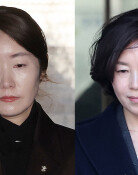Local Government to Charge Residence Tax
Local Government to Charge Residence Tax
Posted January. 30, 2008 03:29,
The government is pushing for a new taxation rule to relegate the authority to levy the residence tax to local authorities. The central government has been imposing the tax at a certain rate in proportion to the corporate or personal income tax. Once changed, each local government would decide on its own taxation rate and standard of assessment.
The new move is intended to give bigger financial autonomy for local governments to widen revenue sources and win more corporate investments.
The government and the presidential transition committee proposed the new tax scheme yesterday. The Ministry of Government Administration and Home Affairs (MOFAHA) recently issued a memorandum to the National Tax Service, instructing the tax agency to find out ways to relegate the taxation authority to local governments. Under the plan, each local government would levy the residence tax, which constitutes one tenth of the corporate or individual income tax. Further, the tax will be consolidated into a taxation title of local income tax.
The memo also contains suggestions on how to determine the tax rates between corporate and individual taxpayers and among local governments. Once the part of the income tax is transformed into a separate tax source, each local body may adopt its own rates, follow the across-the-board rate of 3 percent or apply different rates to corporate and individual taxpayers.
The driving force behind the change is to give financial autonomy to local autonomous entities so that they could manage their treasuries separate from the central financial operations or changes in tax laws.
A senior MOFAHA official confirmed, on condition of anonymity, A flat rate has been applied to the residence tax across the board. Since the income tax, corporate or individual, serves as the basis for taxation of the residence tax, local bodies have to watch their tax revenues dwindle if the central government lowers tax rates.
The incoming Lee Myung-bak administration has pledged to lower the corporate tax rates through several phases. Therefore, experts have voiced concerns about the financial healthiness of local governments.
Furthermore, some say that each local government should be granted autonomy to adjust the tax rates and brackets on its own to entice more investment.
A transition committee source explained, For each local government to attract more investors, it has to give its own distinct incentives to them, including the provision of relevant infrastructures. Thats why we need the change.
On the contrary, the Ministry of Finance and Economy is voicing opposition, citing the possibility that only some local governments with business-friendly environments may benefit, highlighting the need for interagency cooperation and coordination with the committee.
According to the MOGAHA data, the residence tax amounted to 6.21 trillion won in the fiscal year of 2006, or 15 percent of the aggregate tax revenues of all local bodies.
koh@donga.com







